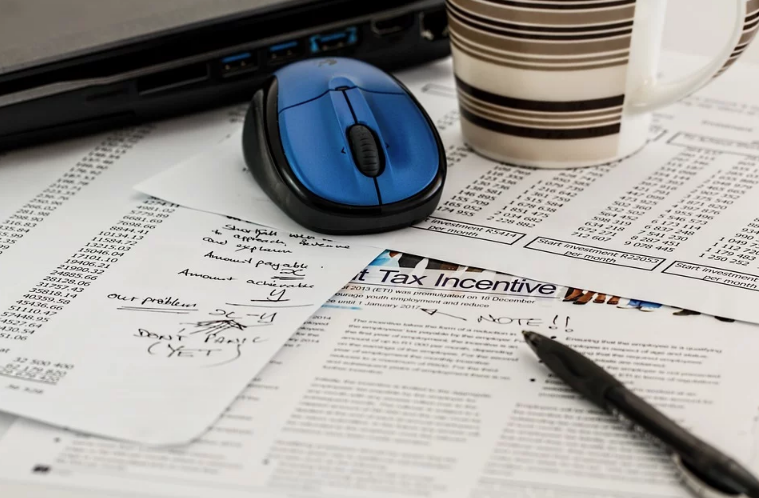5 Helpful Tips To Do Your Own Taxes
Share

Now that the new year has come and gone, it’s time to start thinking about your taxes. As you probably know, the majority of 2019 income tax returns will be due by April 30th. In order to ensure that you file your taxes on time, it’s a good idea to start preparing your tax documents as soon as possible.
So how can you get the most from your income tax refund and avoid costly fees? To help get you started, let’s take a look at 5 helpful tips to do your own taxes:
File Your Tax Return On Time
If you want to get more money back when filing your taxes, it’s vitally important to file by the due date. As previously stated, most Canadians will need to file their tax return by April 30th (June 15th for self-employed individuals). However, it may take some time to gather the correct documentation, so you shouldn’t wait until the final hour.
If you do miss the deadline, you will need to pay a 5% penalty fee on top of the amount you owe. Additionally, the longer you wait, the more you’ll have to pay. You will accrue 1% in penalties per month that you are late (up to 12 months). This means that filing on time is one of the best ways to avoid penalties when you do your taxes on your own.
Keep Your Tax Documents Organized Year-Round
You probably won’t receive every document you need for your tax return all at once. As a result, you will need to keep these documents organized throughout the year. This way, when tax season rolls around, you won’t have to scramble to find everything.
While everyone must organize their tax documents based on individual circumstances, there are a few helpful file categories that might help you simplify your tax return and keep track of the necessary documents:
- Monthly Bank Account Statements
- Credit Card Statements
- Income or Pay Slips
- Investments
- Receipts
- Retirement Account Statements
- Tax Return(s)
- Miscellaneous Tax Information
Know Your Income Tax Bracket
You’ll see exactly how much you will receive or owe in taxes on your T4 document. Generally, you will see a breakdown for three different tax categories: Income Tax, Canadian Pension Plan (CPP), and Employer Insurance (EI). The largest part of your taxes will likely be Income Tax. The percentage of income taxes you pay each year will depend on how much you made.
If you overpaid during the year, you will receive a refund once your taxes have been filed. However, if you paid less than you owe for your income bracket, you will need to pay the remainder of your taxes by the due date to avoid penalties. Here is a breakdown of the most up-to-date income tax brackets:
- 15% on taxable income up to $48,535
- 20.5% on the next $48,534 of taxable income
- 26% on the next $53,404 of taxable income
- 29% on the next $63,895 of taxable income
- 33% of taxable income over $214,368
Keep Track of Expense Deductions
Not everyone who files taxes will have deductible expenses. However, they can end up saving you a lot of money on your tax bill, so it never hurts to check. If you don’t keep track of important receipts throughout the year, you may end up losing out on a sizeable tax deduction.
What qualifies as a tax-deductible expense? There are many kinds of purchases and investments that could make you eligible for a deduction, but some of the most common categories include:
- Family and Childcare
- Education
- Disability
- Business
Confirm Your Tax Return Address
Most Canadians can do free tax filing online through NETFILE (you can learn more about filing online here). However, if you’re ineligible for online tax filing or simply prefer to file by mail, you will need to send your forms to the correct address. Every year, the Canada Revenue Agency (CRA) will mail your tax package, including mailing labels with the address that corresponds to your location.
That said, if you’ve misplaced the mailing label, you can find the correct address to send your tax documents on the CRA website. Since the mailing address will depend on where you live, it’s vital that you send your documents to the right place. If you don’t, your tax documents will likely get returned, which could result in a late filing and costly fees.
You may also be interested in: How to Improve Your Relationship with Money
Writer: Gal Greene
Disclaimer: All investing can potentially be risky. Investing or borrowing can lead into financial losses. All content on Bay Street Blog are solely for educational purposes. All other information are obtained from credible and authoritative references. Bay Street Blog is not responsible for any financial losses from the information provided. When investing or borrowing, always consult with an industry professional.





Bay Street Blog Newsletter
Click here to subscribe for a financial savvy experience.
Please check your email to confirm subscription!